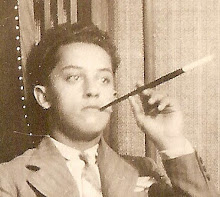1.- Émile Zola was born in Paris (France), in 1840, but grew up in Aix-en-Provence. In the school, his friend was Paul Cézanne. They will be friends until 1886. Afterwards, they will break and Zola will write of this deception in his novel “The masterpiece”. Here, he will criticize the bohemian life.
2.- Émile Zola’s father died in 1847 and the family had economical problems. Zola worked as a clerk in a shipping firm and in the sales department for a publisher: Hachette. However, at the same time, he started to write literary and art reviews for newspapers.
3.- As a political journalist, Zola criticized Napoleon III, president of the French Second Republic and emperor after a coup d’état. Frequently, his writings were censured and Zola began to be famous in France.
4.- After publishing several short stories, essays and plays, Émile Zola published “Contes à Ninon” in 1864 and “La Confession de Claude” in 1865. This last one was scandalous since it was a sordid autobiography. The novel attracted policy attention and Hachette fired him.5.- Thérèse Raquin (1867) was the first Émile Zola’s major novel. Afterwards, influenced by Balzac (“La Comédie Humaine”), he started to write Les Rougon Macquart, a series of 20 novels about two branches of a single family: the respectable Rougons and the disreputable Macquarts.
6.- En 1877, his novel L’ Assommoir made him rich. Zola bought a castle in Medan, near Paris, and organized dinners with important people: among them Guy the Maupassant. Germinal, in 1885, established him as successful author.
7.- Émile Zola’s “J’accuse”, an article published in the front page of the newspaper L’Aurore, accused the highest levels of the army of antisemitism and obstruction of justice by having wrongfully imprisoned Alfred Dreyfus, a jew captain, in a terrible place in the French Guiana.8.- Émile Zola died in 1902, maybe killed by his political enemies. He was initially buried in Montmartre, but in 1908 his corps was moved to the Panthéon and he shares a crypt with Victor Hugo and Dumas.
Read also my last interview about flash fiction:

